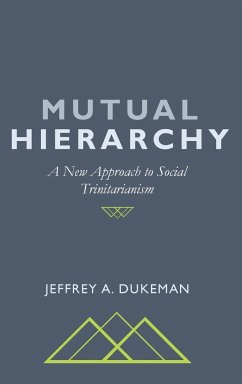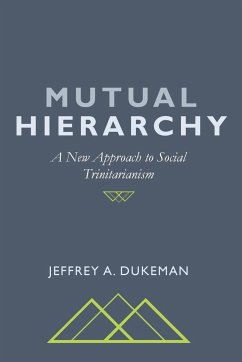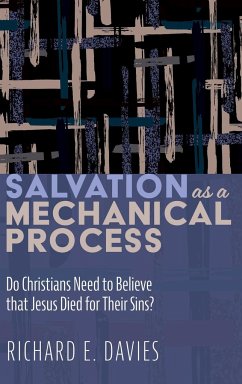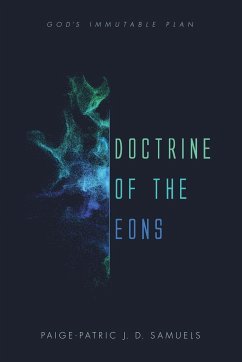Social Trinitarians have not been shy about positing community as the chief ontological category for Trinitarian discourse. As beneficial as this is, social Trinitarians have typically been less helpful in advocating the sort of human community for the Trinitarian analogy that most people would probably find desirable. To use the example of a marriage, one has often been forced to choose between a fully egalitarian view, where the spouses supposedly have no differences from each other, and a hierarchical view where a husband exercises a unilateral and oppressive power over his wife. This book advocates a third alternative for the sort of community present in the Trinity. Just as genuine teamwork is generally desirable in various human communities, the divine persons have a mutual hierarchy relationship with each other. Here each divine person has a unique hierarchy over the others, and yet each uses this hierarchy to serve the others in a dignified way. Recognizing this mutual hierarchy of the divine persons fosters a view of the Trinity that is maximally social, in keeping with the name ""social Trinitarianism."" In proceeding thus, the book attempts to, in a unique way, show the harmony between systematic theology, exegesis, and practice.
Hinweis: Dieser Artikel kann nur an eine deutsche Lieferadresse ausgeliefert werden.
Hinweis: Dieser Artikel kann nur an eine deutsche Lieferadresse ausgeliefert werden.








